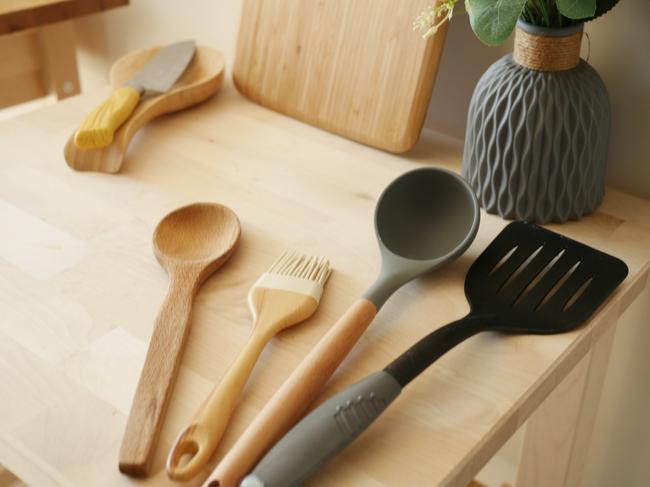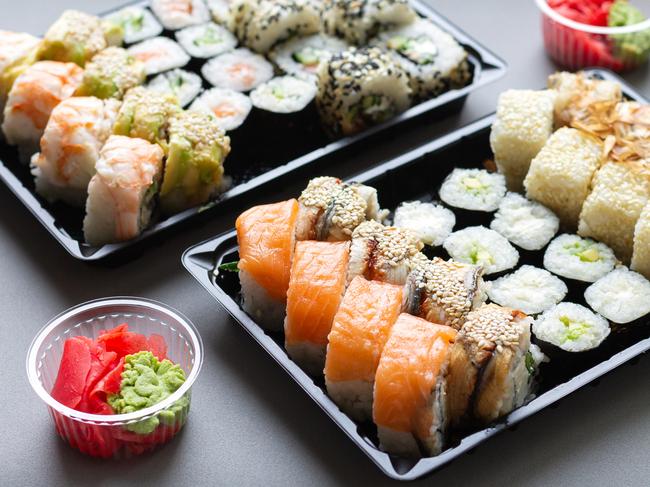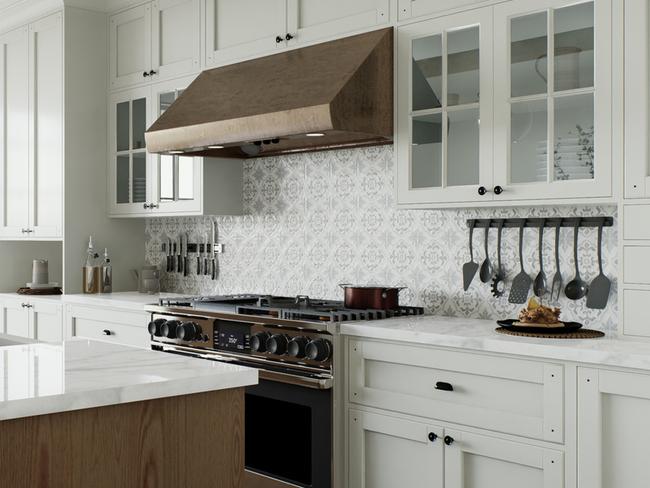Black plastic kitchen utensils may be poisoning you, study finds
Experts are advising people to get rid of an item many of us have in our homes after an alarming find published in a new study.

Food
Don't miss out on the headlines from Food. Followed categories will be added to My News.
Black plastic cookware has become a staple in many kitchens — but it might be harmful.
A new study found that some of the items contain high levels of cancer-causing, hormone-disrupting flame retardants, the New York Post reports.
The peer-reviewed study by researchers at Toxic-Free Future and the Amsterdam Institute for Life and Environment at Vrije Universiteit tested 203 household products made of black plastic — and 85 per cent of them had high retardant concentrations.
Megan Liu, study co-author and science and policy manager at Toxic-Free Future, explained that the retardants are the same ones found in electronics, such as TVs, cell phones or computers.
This is particular to black plastic items — not those of other colours — because recycled electronic components that use flame retardants tend to be black.

“These cancer-causing chemicals shouldn’t be used to begin with, but with recycling, they are entering our environment and our homes in more ways than one,” Liu said. “The high levels we found are concerning.”
The study, published in the journal Chemosphere, explained that recycling of plastics used in electronics can eventually lead to reusing them in household items that don’t require flame retardancy, ultimately resulting in “high and unnecessary exposures” that can be dangerous — especially to children and women of childbearing age.
Related health concerns include carcinogenicity, endocrine disruption, neurotoxicity, and reproductive and developmental toxicity, according to researchers.
Although they did not disclose the specific brands or manufacturers, the highest levels of flame retardants were found in spatulas, sushi trays and beaded necklaces.

One of the chemicals detected in utensils was the banned substance deca-BDE, which was previously used to make electronic casings. The study revealed that the substance continues to seep into our homes through recycled plastic.
“These results clearly demonstrate that flame retardant-containing electronics, such as the outer casings of large TVs, are being recycled into food storage containers and utensils,” Heather Stapleton, the Ronie-Richele Garcia-Johnson distinguished professor at Duke University, said.
“While it’s critical to develop sustainable approaches when addressing our plastic waste stream, we should exert some caution and ensure we’re not contributing to additional exposures to these hazardous chemicals in recycled materials.”

Though it’s nearly impossible to rid your home of everything that may be harmful, Jamie Alan, associate professor in the Department of Pharmacology and Toxicology at Michigan State University, told HuffPost that people should work toward getting rid of their concerning kitchenware.
“If you can gradually replace your spoons or use the black-coated ones less, that’s great,” Alan said.
If you can’t replace them right now, that’s OK, but try not to keep them in contact with hot items for too long, Alan advised. However, the utensils should be immediately replaced if they melt or become misshapen due to the heat.
“Certainly, if you melt the spoon, I have done this many times because I’ve forgotten it and left it … throw that away,” Alan said, adding that the food being made should be tossed as well.
While metal, wood and ceramic kitchen utensils are all good options, Alan prefers metal because it’s easiest to clean and is good for cooking with high temperatures.
Wood and ceramic are good, too, but they are harder to clean and sanitise properly.
This article originally appeared on the New York Post and was reproduced with permission
Originally published as Black plastic kitchen utensils may be poisoning you, study finds




